Under indoor bamboo most often mean the plant Dracaena Sander. Paradoxically, this flower has nothing to do with real bamboo, except for external similarity. This plant is also known as Lucky Bamboo, Chinese Bamboo and Dragon Tree. Indoor flower got such names for a reason. The Chinese treat him very respectfully, as they believe that the plant has magic. Feng Shui pays particular attention to this type of dracaena. According to the teachings of Taoist practice, it is a symbol of happiness, good luck and prosperity.
In addition to the exotic look and magical properties, the plant has another invaluable quality - unpretentiousness. Fulfilling all the simple recommendations for care, even a beginner grower will cope with its cultivation.
Content
Characteristics of bamboo and species diversity
Dracaena Sandera is an evergreen herbaceous perennial belonging to the genus Dracaena, the family Asparagus. The homeland of the flower is considered to be the hot African tropics. In a natural environment, the height of the plant reaches several meters. At home, the flower grows no more than 70-80 cm.
The stems are very reminiscent of the trunks of real bamboo. They are bare and segmented. The stems have a bright green color. Occasionally, you can find dracaena with dark green trunks.
Leaves are lanceolate. They reach a length of 25 cm long and 3 cm wide. The texture of the plates is dense. The surface is glossy, as if covered with a thick layer of varnish. In dracaena with light green stems, the leaves have the same color. In rare dark green varieties, they have a two-color color: white-yellow longitudinal stripes are applied on a dark green background of the plates.
It may seem unbelievable, but Happy Bamboo is a flowering plant. It is difficult for even very experienced gardeners to imagine the flowering of bamboo, as this is extremely rare. Only once in a lifetime can he release a flower-bearing arrow with small white flowers collected by panicle inflorescences. Witnesses of a rare event note a pleasant aroma emanating from flowers. Unfortunately, flowering is not good for Dracaena. As a rule, after that she dies.
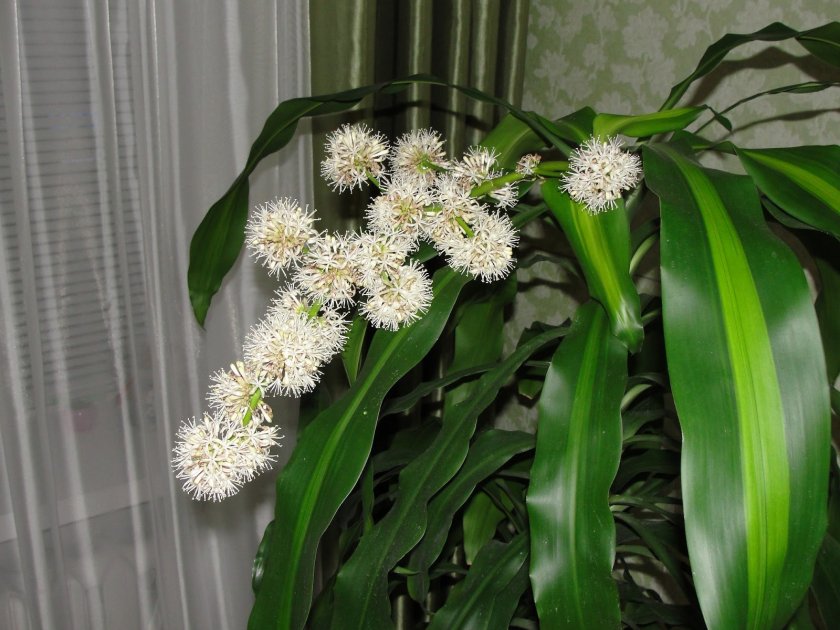
Indoor flower is actively used by designers as an element of room decor. Moreover, it equally harmoniously fits into the interior of both the cold office and the cozy bedroom. Often, the stem of the plant is given a spiral or other unusual shape in order to increase its decorative value.
Secrets and difficulties of home care for indoor bamboo
Depending on where the plant is grown - in soil or in water, there are 2 options for caring for Sander dracaena. In addition, this species has a weakly expressed dormant period, which begins from mid-autumn and continues until spring. Care for the dracaena of the dormant period and the growing season is different.
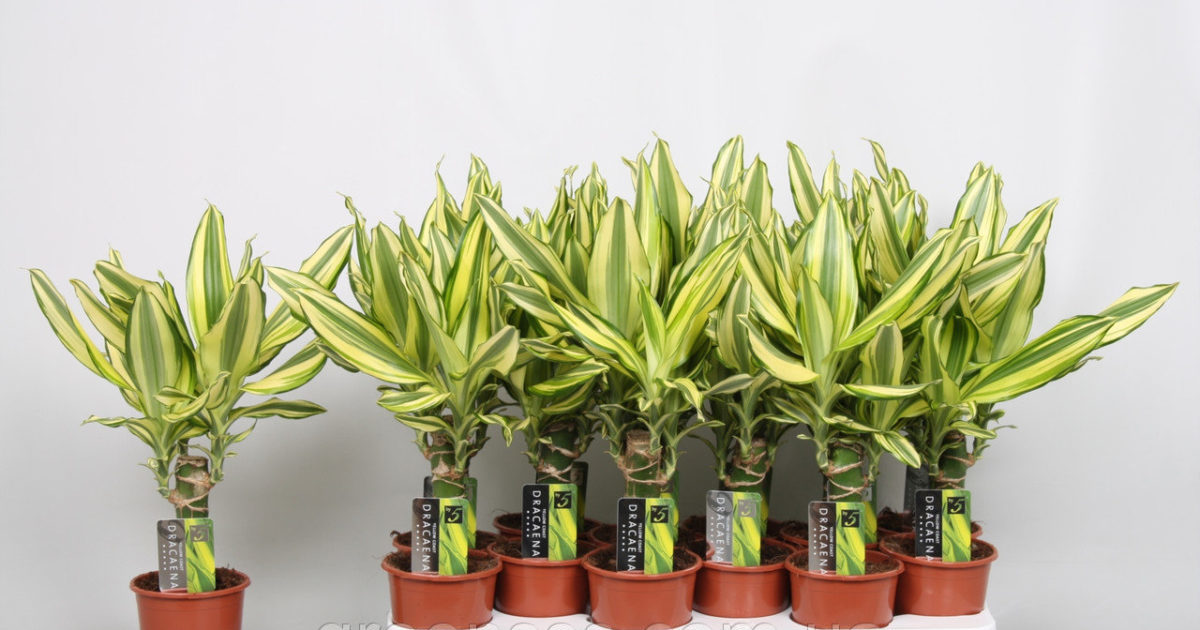 You may be interested in:
You may be interested in:Cultivation and care in water
Bamboo can be grown in water.This basis contributes to the rapid and harmonious growth of the plant. For bamboo, capacity does not matter. But most effective it looks in transparent vases or glasses. To increase the decorativeness, several plants can be placed in a glass pot at once, tied with a ribbon of contrasting color.
At the bottom of the flowerpot, a little pebble is poured. It must first be thoroughly washed, then boiled. Bamboo is freed from old soil, the roots are washed. Growing in water is only suitable for a healthy plant. If root rot is found in dracaena, water will only contribute to its rapid development. Healthy bamboo is placed on pebbles and poured with water.
For cultivation use only soft water. You can use distilled or settled rainwater. The use of household water is unacceptable, even if it has been pre-filtered.
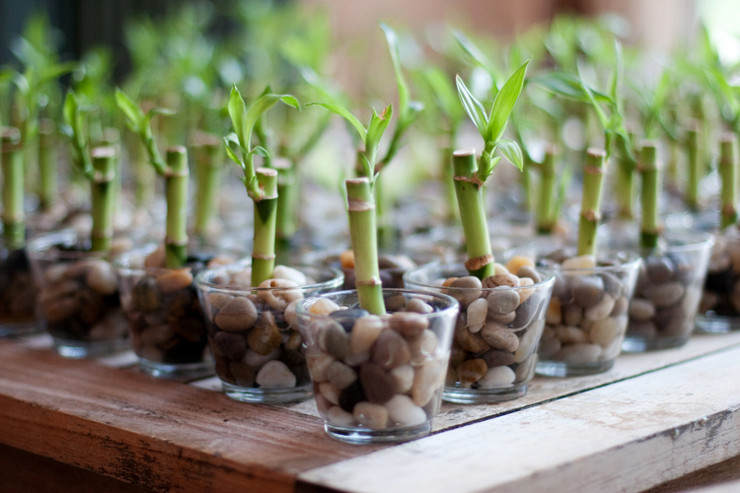
Bamboo can also be grown in hydrogel. It is advisable to use small granules. The plant is placed in a hydrogel and poured with water. It is periodically necessary to add fresh water. Feeding is administered every six months.
Landing
Dracaena is not picky about the soil. Her only requirement is good air exchange. Therefore, the flower is grown even in universal soil. You can prepare the soil yourself. To do this, mix the following components:
- turf land - ½ part;
- sheet land - ¼ part;
- peat - ¼ part.
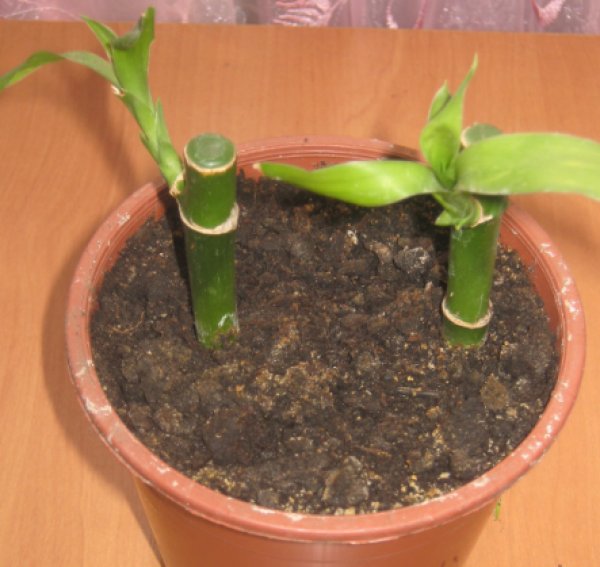
Particular attention should be paid to the flower pot. The thickness and height of the bamboo stem directly depend on the spaciousness of the pot. To grow giants, they take large tubs, and bamboo grows in a neat bush, a smaller capacity should be selected.
Young flowers are transplanted annually, and adults - every 2-4 years. When transplanted, the plant is placed in a larger pot.
Proper watering
Growing a flower requires a competent organization of watering. Improper hydration contributes to the development of diseases in the plant.
The frequency of watering depends on the width of the sheet plates. Dracene with wide leaves is watered every 2 days. Plants with narrow leaves - 2 times a week. In winter, the frequency of hydration is reduced. The volume of water can be calculated by the height of the bamboo.
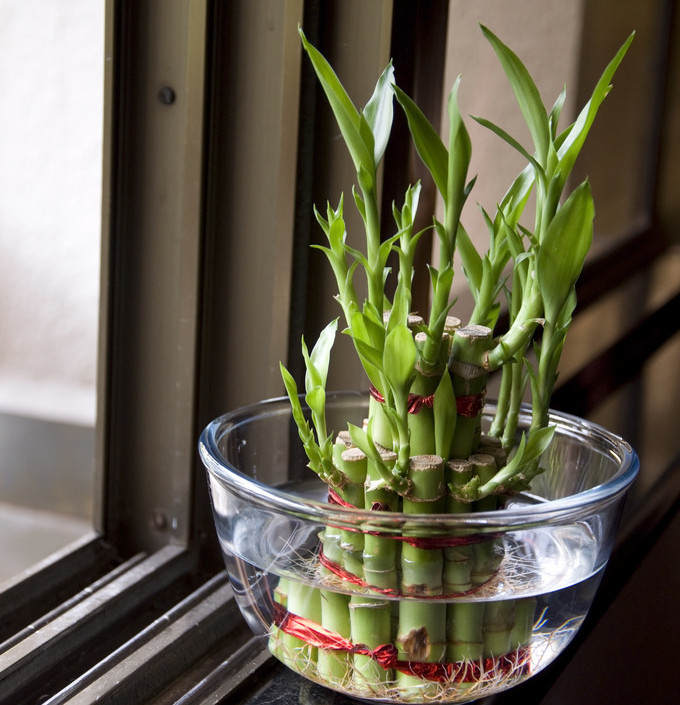
Dracaena grown in an aqueous substrate is watered as necessary. It is important that the roots of the plant are constantly covered with water. Water the flower should be soft water. It is preferable to use rainwater.
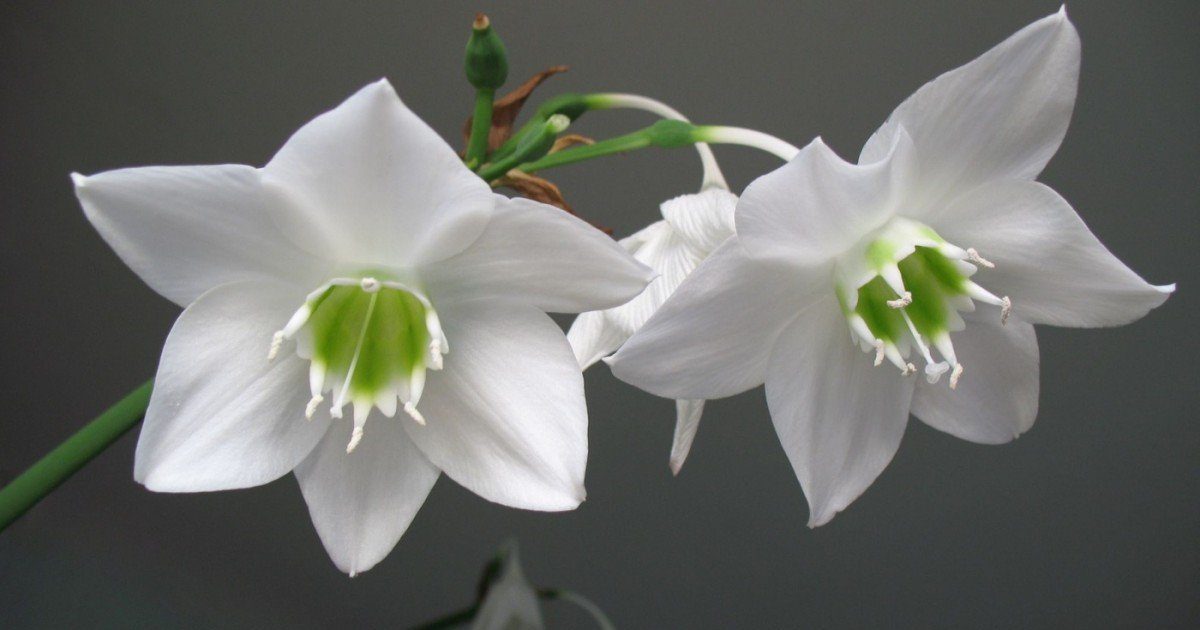 You may be interested in:
You may be interested in:Illumination
A flower loves a lot of bright light. In the morning and in the afternoon, it will be useful for him to soak under the soft rays of the sun. But from the active midday sun it should be preserved.
It is desirable to place flowerpots on east and western window sills. Shading will be required on the south side, especially during peak sun activity.
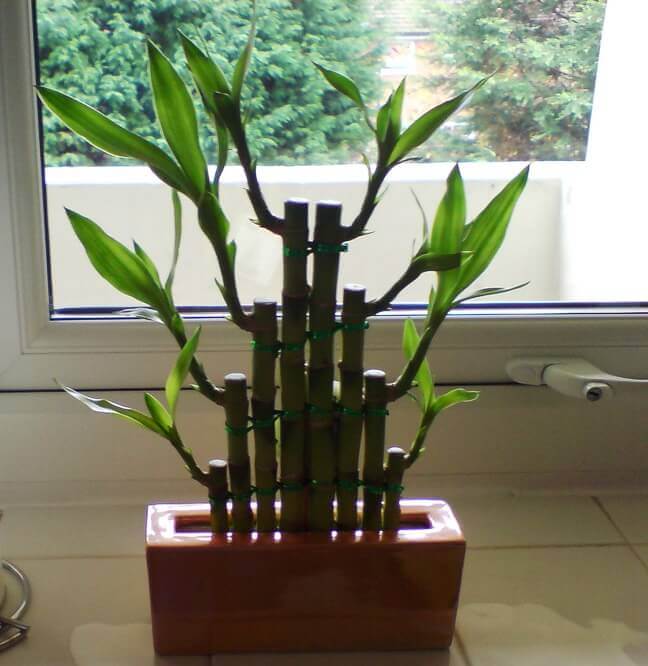
Adult bamboo tolerates partial shade well, so it can be placed on the floor, tables or tables in the immediate vicinity of the light source. In summer, the flowerpot can be taken out to fresh air. At the same time, it must be covered from the sun, possible precipitation and drafts.
Top dressing
Bamboo is in dire need of fertilizer and better perceives them in liquid form.
Regarding the frequency of the introduction of feed to dracenes grown in soil, the opinions of experts differ. Some advise fertilizing the plant every 2-3 weeks, others - every 2 months. You need to focus on the state of the flower, it's enough just to observe it. Fertilizer is applied according to the instructions attached to it. If, after the introduction of feeding, the bamboo begins to turn yellow or discard leaves, it should be fertilized less often.
Temperature and humidity
The flower is kept at room temperature. In the warm season, this range is from + 22 ℃ to + 26 ℃. During the cold season - + 18-20 ℃. The granny will feel absolutely normal even at + 30 ℃, which cannot be said about temperatures below + 18 ℃. A native of warm countries does not tolerate cold, so it is not recommended to be placed in a draft or near an air conditioner.
Dracaena is unpretentious in terms of humidity. She feels comfortable in low humidity conditions. But experienced flower growers still recommend spraying bamboo a couple of times a week and even putting it in the summer under a warm shower, covering the soil with plastic wrap.
Spraying and rubbing the leaves is not only a way to increase the level of humidity, but also hygiene, which is necessary when growing any indoor plant. Leaf hygiene helps to improve metabolic processes and is the prevention of pest infection.
Pruning
Bamboo needs artificial bush formation. Without it, he looks overgrown and groomed. Proper pruning of the flower involves the following steps:
- Dead wood pruning.
- Removing basal stems.
- Determining the desired stem height and pruning it above the branch point.
- Removing excess stem shoots.
- Removing too thin shoots to enhance decorativeness.
Diseases and Pests
Most often, dracaena becomes a victim of such diseases and pests:
| Definition | Symptoms | Treatment methods |
|---|---|---|
| Fungal rot | Dark spots on the leaves | Fungicide treatment |
| Nutrient deficiency | Slow growth, yellowing of the stem and (or) leaves | Proper organization of the introduction of feed |
| Hypothermia | The darkening of the plates, which is accompanied by the loss of turgor and leaf fall | Moving to a room with an optimum temperature for the flower |
| Spider mite | Spider web | Insecticide treatment |
| Aphid | Stickiness of sheet plates |
Very often, flower growers are faced with yellowing of the leaves of the plant. Yellowing can be caused by a number of reasons, among which the following cases should be noted:
- excessive fertilizer;
- lack of moisture and (or) light;
- absence or too thin layer of drainage;
- exposure to drafts;
- unsuitable water for irrigation.
Yellowing can also be caused by natural causes. Bamboo leaves may turn yellow and fall during the natural renewal of leaves.
Methods of propagation of indoor plants
The bulk of gardeners propagates indoor bamboo by cuttings. This is the most effective method of reproduction. New specimens can also be obtained with the help of offspring, apical shoots and dracaena seeds.
Cuttings
Reproduction by cuttings provides for such actions:
- A stem is cut from the mother bush.
- The cut stalk is divided into several parts (the number of segments corresponds to the number of plants removed).It is very important that there is a growth point on each part.
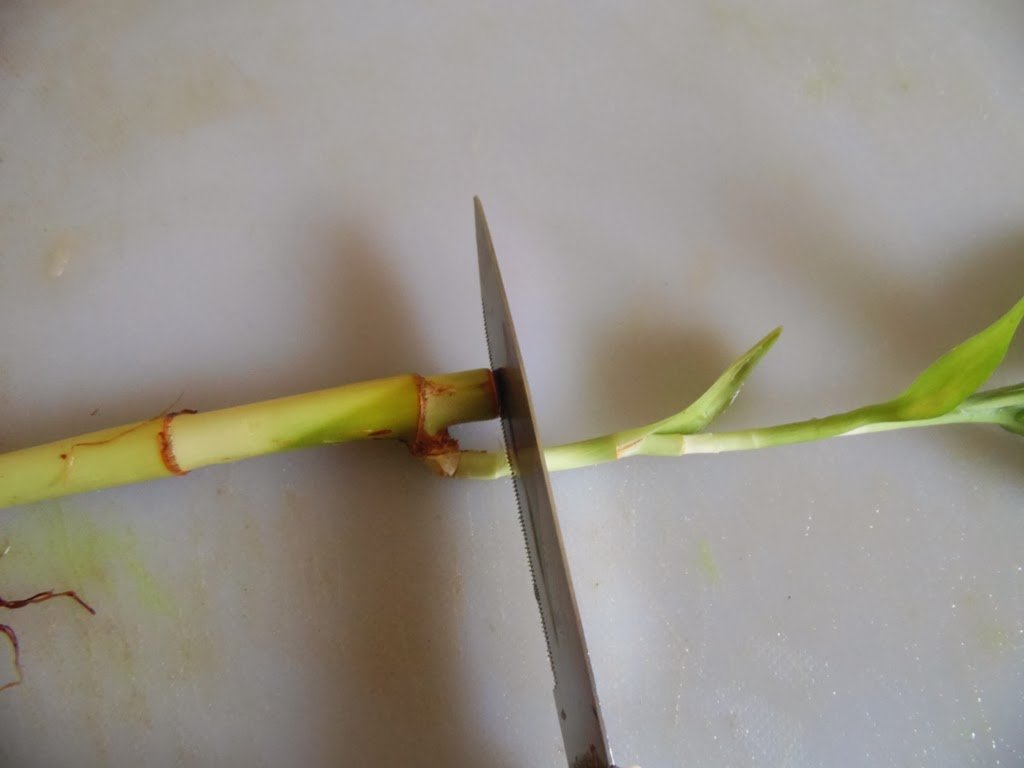
Cuttings - Seat sections clog wax.
- Pieces of the stem are placed in a container of water.
- When full roots appear, bamboo is planted in the soil.
Cuttings are the fastest way to propagate this plant.
Kids
If during the transplantation a kidney is noticeable on the rhizome, a new flower can be obtained from it. To do this, the baby is carefully separated from the mother plant. Experts recommend the use of sharpened tools, because when breaking off, not only the offspring can be damaged, but also the roots of the mother plant itself.
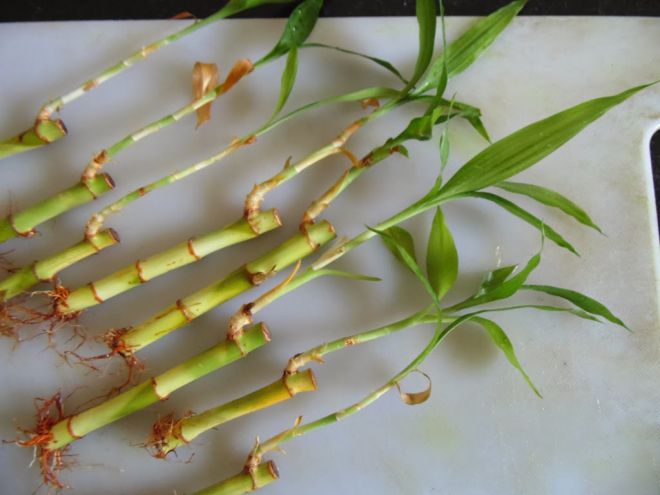
Kidney reproduction is by far the easiest way. But its big minus is that the flower rarely gives growth to children.
Apical shoots
You can get a new dracaena from the apical shoot. To do this, cut off the shoot from the mother bush and place it in a container of water. Place the cut on the bush with wax. The mother plant must be at least 3-4 years old. The rooting process can take a lot of time.
Seeds
Propagation of Dracaena Sander seeds at home is possible, but extremely difficult. Seeds of this species are very poor in germination. Even if the grower manages to germinate the seeds, he will encounter the difficulty of providing the shoots a constant temperature for six months.
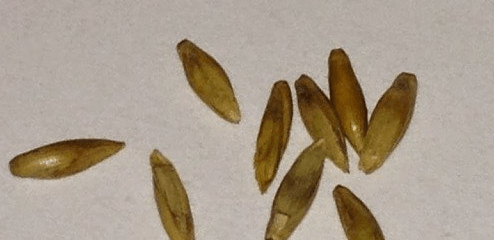
In addition, sprouts need a strictly limited daylight hours and a certain level of humidity. The seed path of propagation of dracaena is used only by breeders to obtain a large number of new plants.
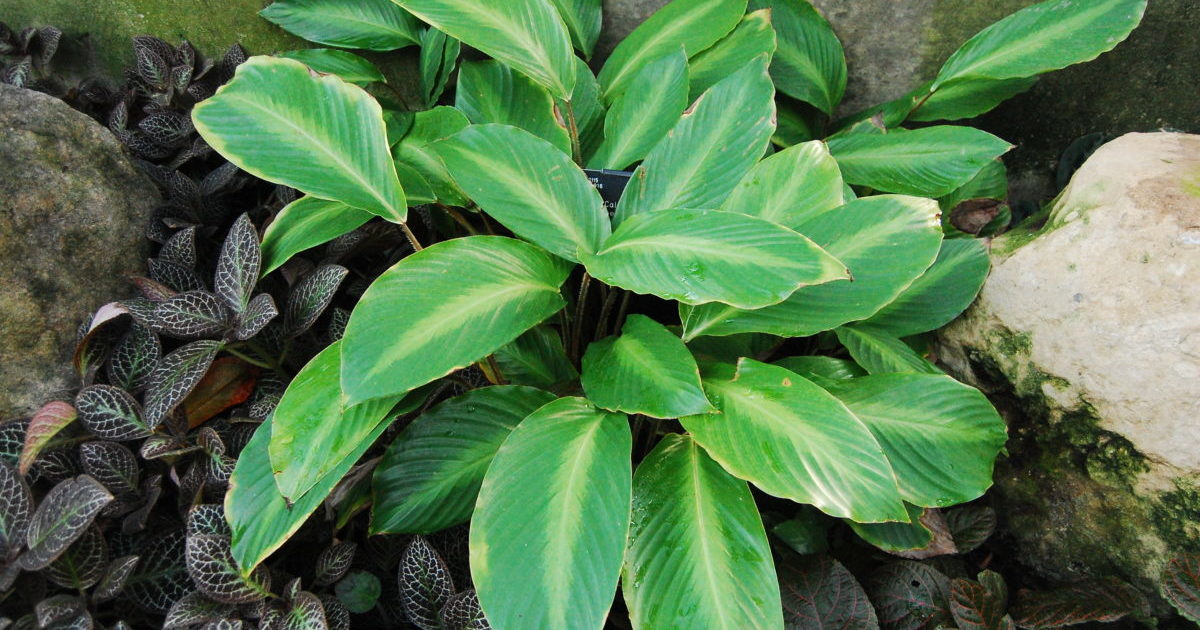 You may be interested in:
You may be interested in:The magical properties of bamboo
The flower is often called Chinese Bamboo. He received this name for his respectful attitude to himself in the Middle Kingdom. The Chinese consider it a happy plant, which brings its owner health, luck and financial well-being.
The magical properties of bamboo change direction depending on the number of stems on the bush:
- 3 stalks bring good luck in all endeavors;
- 5 stems attract love;
- 7 stems give their owner precious health.
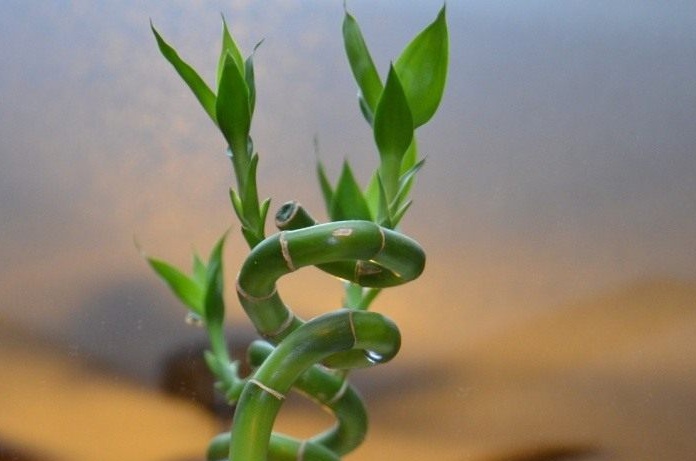
For plant magic to take effect, just buying bamboo is not enough. It must also be placed correctly.
According to Taoist practice of Feng Shui, the plant should stand in the southeastern part of the house. The purpose of the premises also plays a role. So, to attract love and health, the flower is placed in the bedroom, and for success in financial matters it is placed in the office or on the desktop.
Strengthen bamboo magic can porcelain three-legged frog with a coin in its mouth. But you need to place it below, because the higher the frog is, the greater the risk of the inverse effect of its magic. Also, to increase the magical effect, bamboo is grown in Chinese vases with images of sacred animals.
Answers to Common Questions
Lucky bamboo is a unique indoor view. It combines exotic appearance, unpretentiousness and a little white magic, which the flower generously directs to its owner.

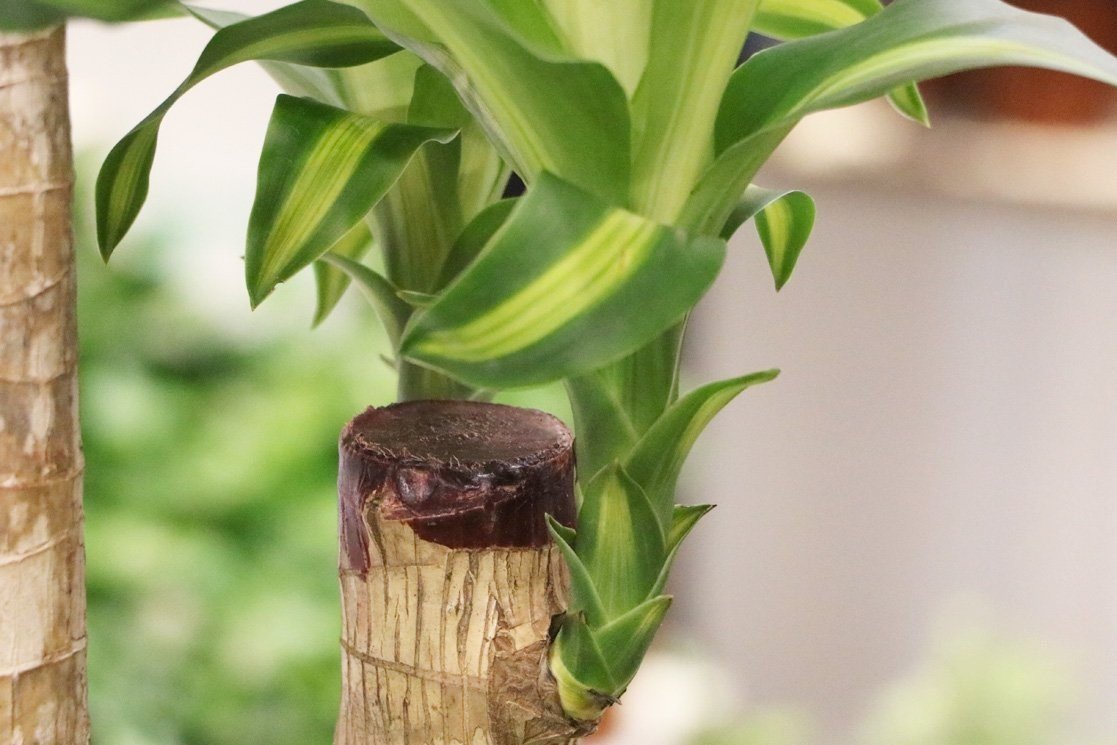
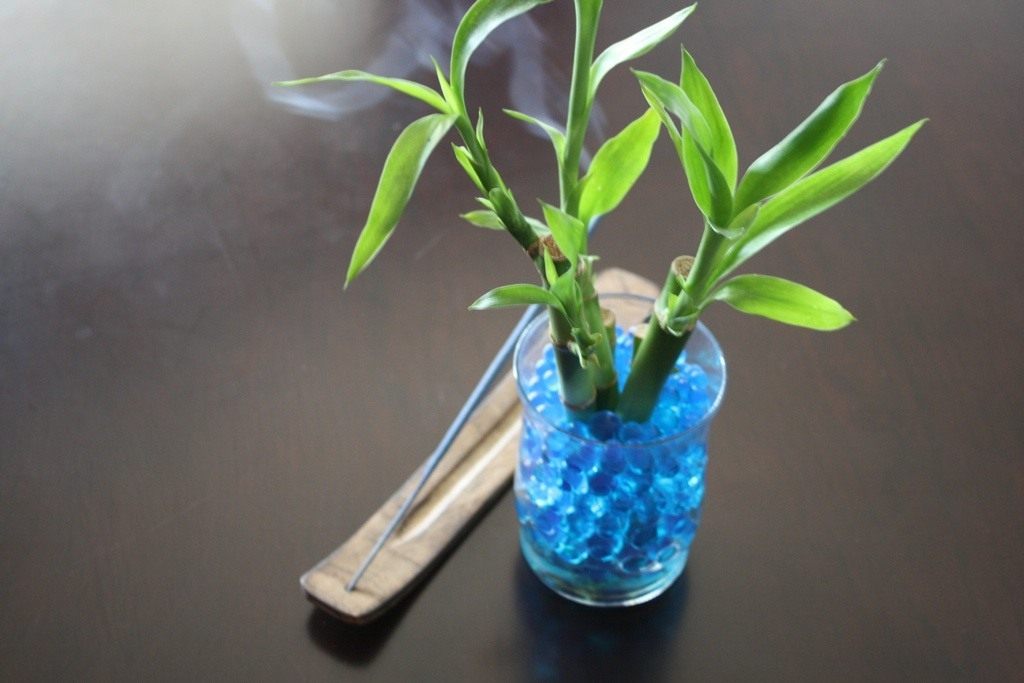
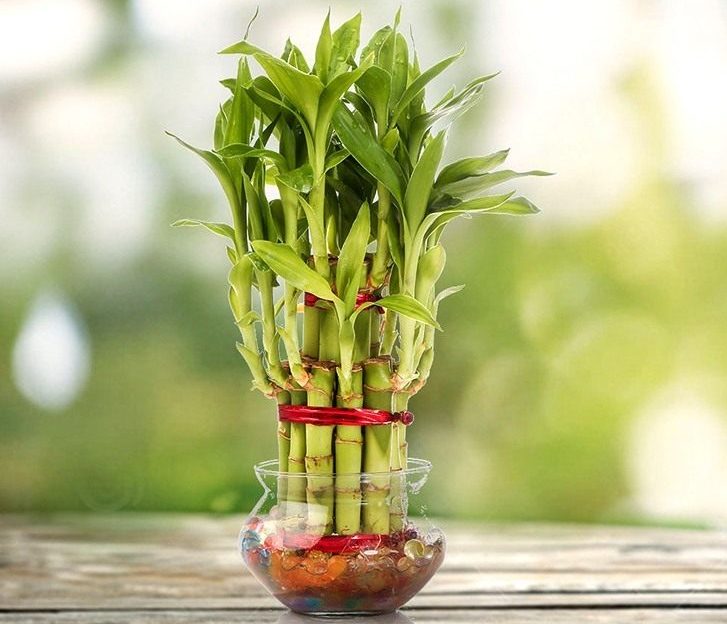
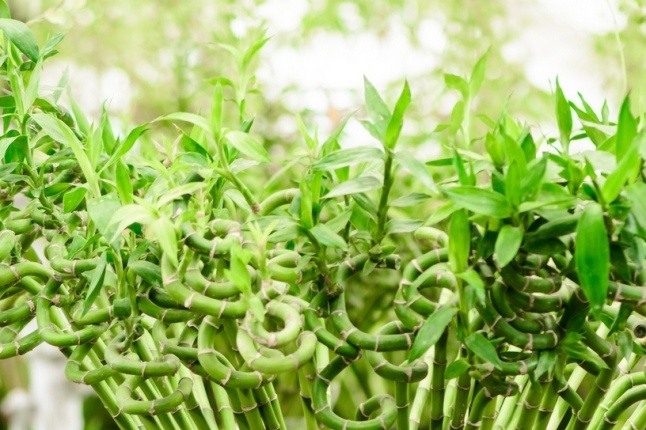
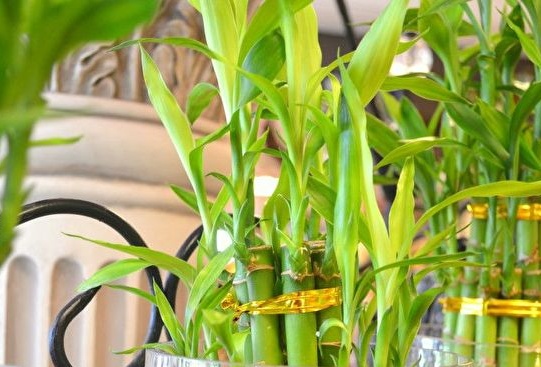
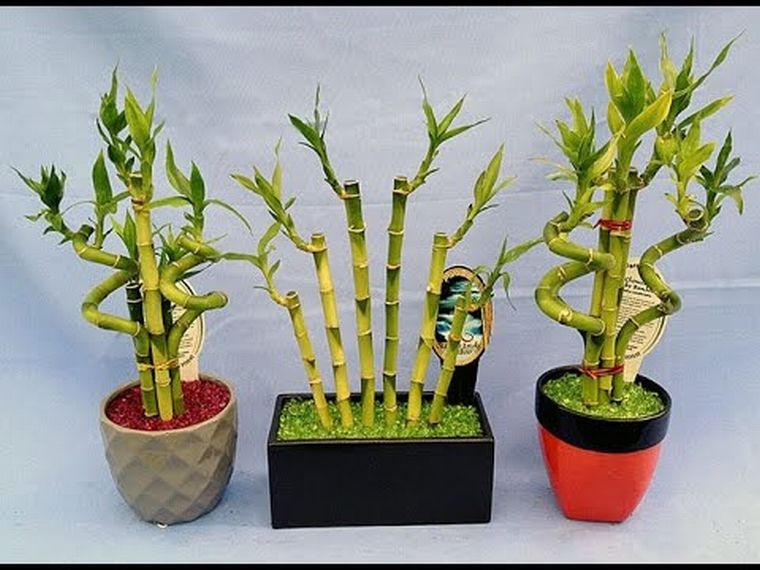

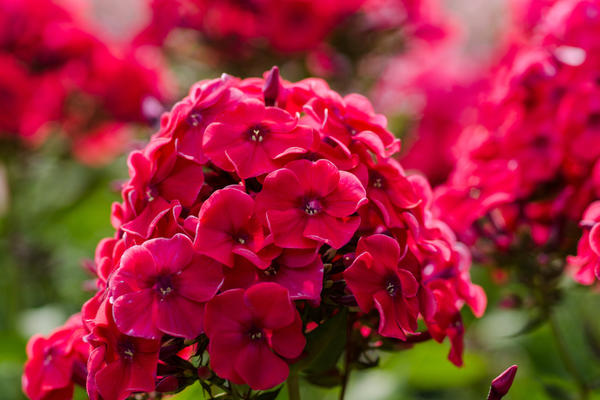
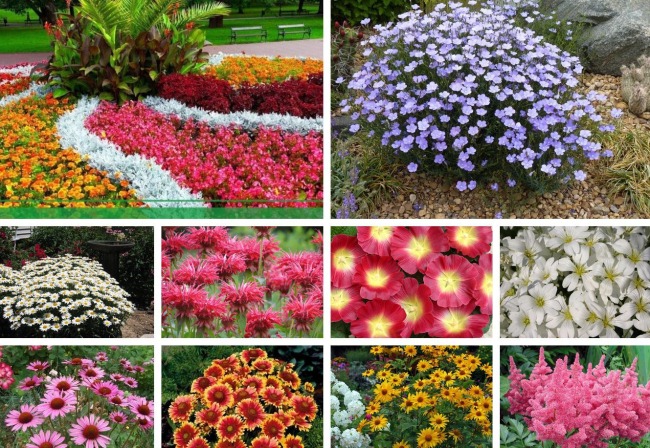
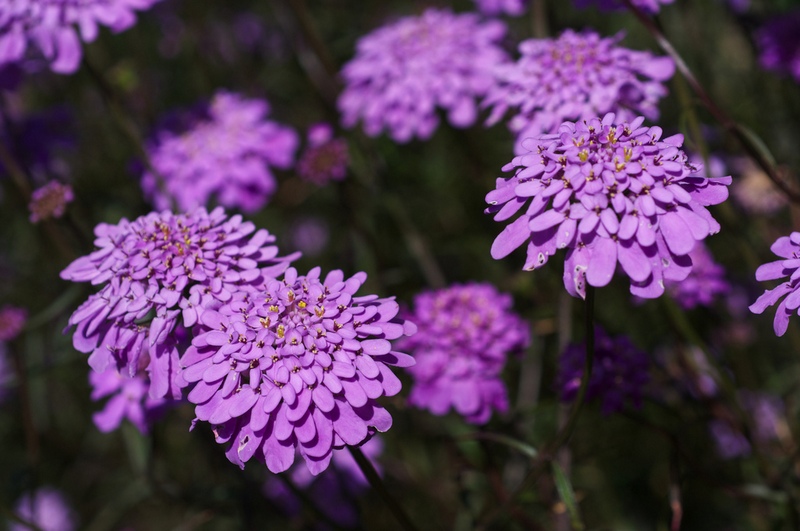 Sow in the ground, without seedlings: 10 beautiful and unpretentious flowers
Sow in the ground, without seedlings: 10 beautiful and unpretentious flowers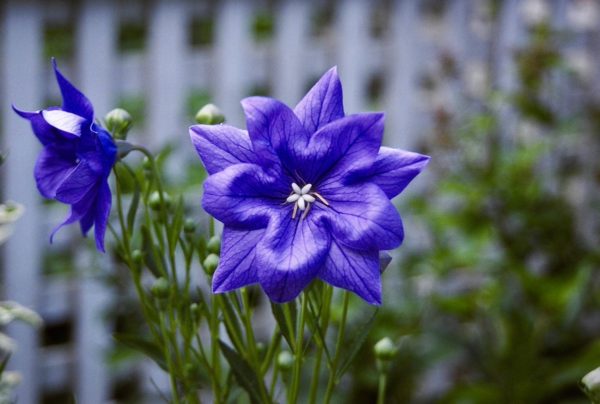 Platicodon planting and outdoor care
Platicodon planting and outdoor care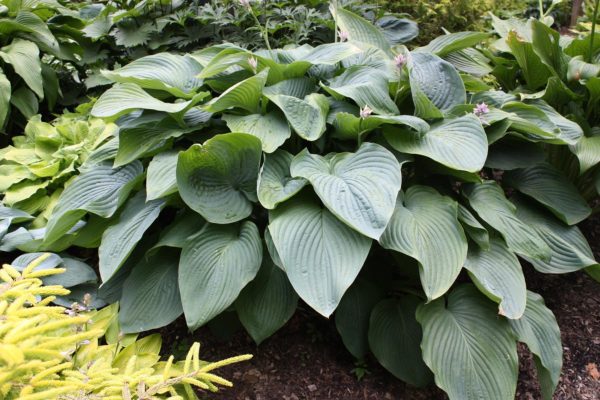 Hosta - planting and care in the open ground in the Urals
Hosta - planting and care in the open ground in the Urals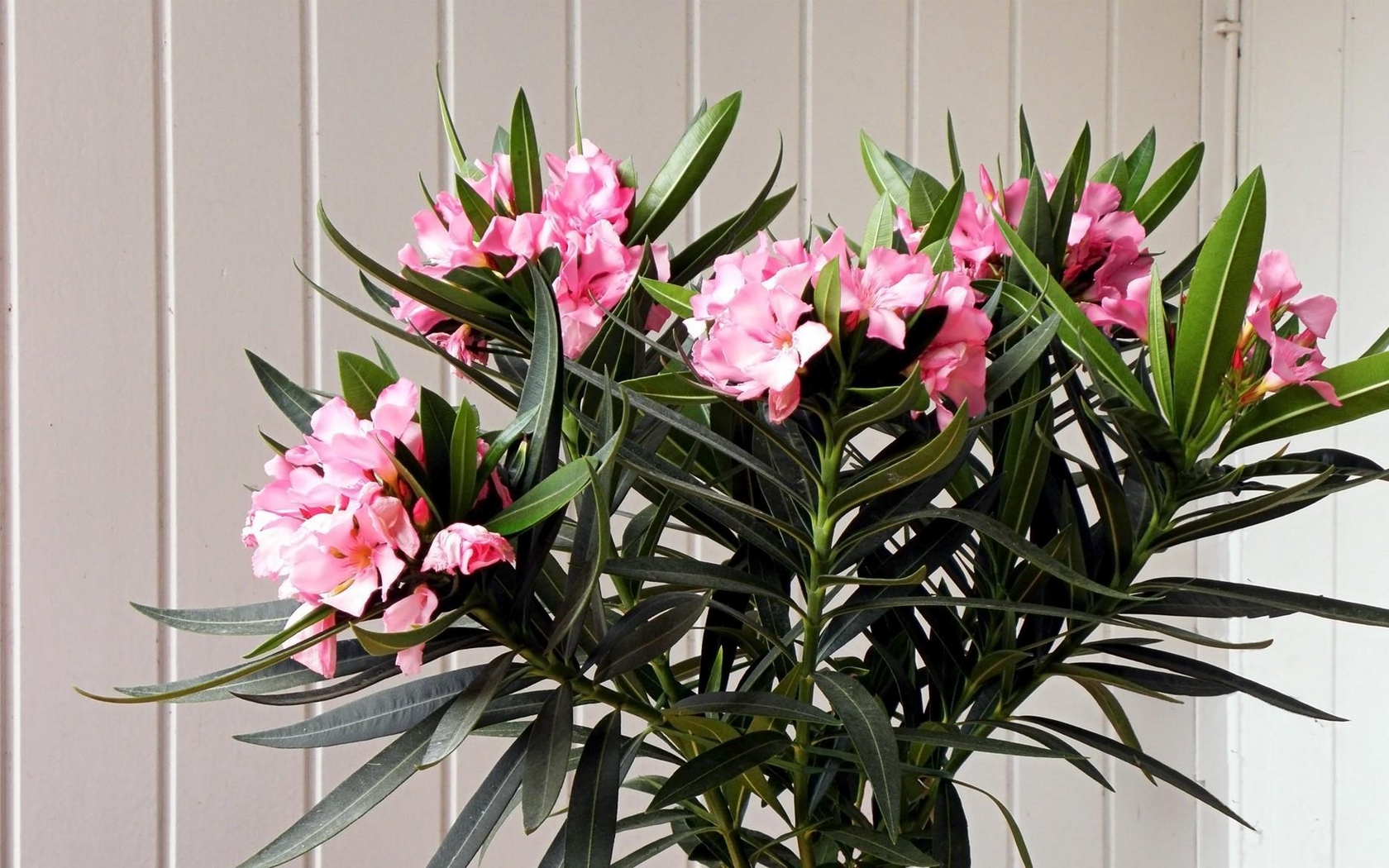 Oleander - care and growing at home
Oleander - care and growing at home